Can Homesteading Save the Planet?

Can Homesteading Save the Planet?
* This article contains an affiliate link. For more information, please read my Affiliate Disclosure.
I’ve been on a personal mission to save the planet ever since I was a little girl.
When I was a kid, I used to take a garbage bag with me whenever I went for walks in my neighbourhood so I could pick up any litter I came across (which was always a lot). Even as a young child, I couldn’t understand for the life of me how anybody could be so careless about the environment that they would just throw their garbage on the ground.
This passion followed me and manifested itself in many different ways throughout my life, from campaigning to save endangered animals when I was a kid (I once made a sign that said “Save the Tigers” and hung it in my bedroom window), to working abroad with the World Wildlife Fund in my twenties and specializing in Environmental Education when I got my teaching degree.
Even as an adult, when I used to go running, I still always brought a garbage bag with me. I had to stop every few steps and some people stared, but I didn’t mind 🙂
My passion for protecting the environment eventually led me to take more of an interest in what I was eating, where my food was coming from, how it was being produced and what the impact of our modern western lifestyle really is on the planet.
My (now) husband and I started watching a ton of documentaries about the health and environmental impacts of our modern, industrialized food system, excessive consumerism and dependence on governments and big corporations to provide for us on such a large scale. What we learned was enlightening at best, and downright depressing at worst.
Related: Why I Homestead
Homesteading as a path to a better world
While these documentaries shed a light on the ills of modern society, they also focused on people who were choosing to live more sustainable lifestyles to improve their health and lessen their impact on the planet. Many of them were small farmers, organic gardeners, off-grid enthusiasts, “back-to-the-landers” and “urban homesteaders.”
Collectively, they called themselves homesteaders, and had chosen to opt out of the “rat race” and go back to living a simpler, more self-sufficient lifestyle.
This was really the first time I’d heard this term “homesteading.” Or at least, it was the first time I gave much thought to what it meant.
I became fascinated with the idea of homesteading and started seriously considering it as an option for myself and my future family as well. Fast forward to today, and I think this blog alone is a testament to what came next. Needless to say, I embraced the homesteading lifestyle with open arms and have never looked back.
There are many reasons why this lifestyle works for us, including
- a desire to become as self-sufficient as possible
- to eat good-tasting food that’s good for our bodies too
- to provide our family with a natural, non-toxic environment in which to thrive
- to inspire our creativity and resourcefulness
- to challenge ourselves to always keep learning and improving
But one HUGE reason why we choose to homestead is because homesteading offers us a real, tangible way to do our part for the planet.
You don’t have to be perfect to make an impact
Now, before I get into some of the ways that YOU TOO can have a positive impact on the environment through homesteading, I want to take a moment to make the following disclaimer: I am not perfect.
Shocking, I know.
But I think it needs to be said, because we seem to live in a world nowadays where everyone is quick to point the finger at each other, judge one another and expect nothing less than absolute perfection from anyone who stands up and speaks out about anything (especially, it seems, when it comes to the environment).
So I’m letting you know right now, I do NOT live some perfect, zero-waste lifestyle.
I have a car that I drive occasionally, and I use technology and work online every day.
I eat meat!
And while I do believe there are many benefits to a plant-based diet and that we should all be consuming a little less meat and a lot more vegetables, I personally believe that sourcing local, ethically-raised, grass-fed meat is better than eating highly processed, genetically modified “meat substitutes” any day.
I even occasionally accept a plastic bag from the store, although I try REALLY hard to refuse any excess packaging or bags.
I also whole-heartedly believe in the scientific evidence that supports climate change, and years of study and critical observation have helped me arrive at the conclusion that human activity is absolutely having a massive impact on the unprecedented speed with which the planet is warming.
I also believe with all of my being that climate change is one of the biggest threats facing humanity (and all life on Earth) today, which is another key reason why growing my own food, becoming more self-sufficient and preparing for an uncertain future is SUPER important to me.
And in between all of the things I do and believe and stand for, I’m only human. I’m just trying to do my best in an increasingly hostile and judgmental world where it seems that good is never enough.
Let’s agree on what we can agree on
I know there will always be people who will disagree with me on certain things, and that’s okay!
Please know that I’m not trying to change anybody’s opinions or beliefs. I respect different points of view and lifestyle choices and I hope you can respect mine as well.
But I’m fully aware of how deeply divided people are over issues like climate change and even what we choose to eat, and how politicized these issues have become over the past few years especially. I’ve seen this division bring out the absolute worst in people, including everything from shaming and name-calling all the way to threats of violence against those with a different opinion.
At the end of the day, the biggest challenge humans have to face is learning how to work together to create a healthier planet and a better future, which is something (I hope) we all want for ourselves, our children and all life on Earth.
And so, we do what we can. And while it may not literally save the planet, I truly believe that every small action, whether positive or negative, truly does make a difference. And that many small actions over time can have a BIG impact.
My hope is that regardless of your personal beliefs, that we can all come together on the issues that we do agree on. And I know that safeguarding our land and creating a healthy environment to grow and live and thrive in is something that most homesteaders hold near and dear to their heart.
How we go about it and what political beliefs we prescribe to are personal choices and opinions. But at the end of the day I think we all have more in common with each other than not, so my hope is that we can focus our attention here instead of on what we believe divides us.
Alright, now that I’ve cleared that up, let’s talk about some of the real, tangible ways that homesteading can help you tread a little lighter on the planet (even if this isn’t the reason why you’ve chosen to homestead).
Eight ways homesteading can help save the planet
1. Homesteading produces less waste
“Use it up, wear it out, make do or do without.” That’s the homesteader mantra, and it can help keep a lot of waste out of the landfill.
Not only is one of the tenets of homesteading to reuse, repair and repurpose as much as possible to save money and avoid having to buy new, as an added bonus, it helps to cut down on consumerism and the subsequent waste that it produces.
Also, when you grow and preserve your own food, that can massively cut down on packaging waste. Even if you don’t grow your own, most homesteaders have a tendency to buy food locally and in-season from other farmers in their area, and more often than not, small farms tend to package their products in compostable containers rather than, say, plastic clamshells like you see in the grocery store. And then if you preserve it yourself, you can reuse glass Mason jars over and over and over again.
2. Our food doesn’t travel as far
Again, whether you’re growing food yourself or purchasing it from local farmers when it’s in season, you can massively cut down on the distance your food has to travel, and that helps to reduce your overall carbon footprint too.
If you’re interested in eating more locally (even if you don’t grow your own food yet) check out the book The 100 Mile Diet.
Related: 25 Ways to Become More Self-Sufficient
3. We produce less food waste
Just as homesteaders tend to produce less waste over all, food waste, specifically, is massively reduced by preserving food at peak ripeness and by cooking from scratch and using the ingredients you have on hand.
Plus, many homesteaders have livestock and/or a compost pile somewhere on their property, so any food scraps can be put to good use by going to feed the animals or by being turned into healthy, nutrient-rich soil for future plantings.
4. We use more natural solutions and organic methods
Many modern homesteaders tend to opt for natural, organic solutions over synthetic ones that can be harmful to both our health and the environment. Eliminating harmful substances like Monsanto’s Round Up weed killer, chemical cleaners and “fragrance” sprays and opting for natural solutions like hand-weeding, mulching, using essential oils and making your own all-natural cleaning products keeps dangerous chemicals out of our land, water and air. And that’s good for people and the planet.
5. Homesteading helps to protect and preserve biodiversity
Whether you’re attracting bees and other pollinators to your property with flowering plants, building a home for Mason bees or hanging a hummingbird feeder, or providing a little food for local critters (we leave most of our sunflower seeds to the birds and squirrels at the end of the season), you’re helping to protect biodiversity in your area, which helps to maintain a thriving ecosystem in areas where humans have moved in and developed the land.
Also, by planting heirloom seeds, saving seeds to replant year after year and trading seeds and plants with others in your community, you can help to protect biodiversity within the plant kingdom and preserve old and ancient strains that might otherwise be lost forever.
6. Homesteading (often) uses less energy and produces fewer carbon emissions
While this isn’t necessarily true in every case or for every homesteader, many use less energy and produce less harmful emissions with their lifestyle. Some of the ways we can accomplish this include:
- staying close to home more often (and therefore not driving, flying or otherwise travelling as much as lots of people do)
- hanging laundry to dry on a clothesline instead of throwing it in the dryer
- using rain barrels to collect rainwater instead of watering our plants from the grid
- living off-grid completely and using less power (obviously this only applies to those homesteaders who actually live off-grid)
- generally being more conscious about energy efficiency, usage and conservation in our homes and around our homesteads
7. Homesteaders produce more and buy less
Much like the way homesteaders tend to produce less waste, we also tend to buy less, produce more and spend our money with more intention. So, for example, many homesteaders prefer to spend their money at the farmer’s market over the grocery store, or on locally-made, organic goods rather than big box stores. We value the quality of the products we buy and the people who grow and make them (not to mention they’re usually much better for us and the planet too!)
We believe in investing in our local communities and economies and supporting small businesses. If possible, we even like to trade with others instead of using money at all! And in the end, we not only produce less waste, but we keep money out of the hands of big, destructive corporations and industries too.
I firmly believe that every dollar you spend (or don’t spend) is a vote cast. In fact, I would venture to say that our buying power is THE most most powerful tool we have to make a difference in the world. If there is something or someone you don’t support, don’t give them your money. Visa versa, if there is something or someone you do support (like your local, organic farmers;), try to support them whenever you can.
8. We raise environmentally-conscious children
I know an amazing mama homesteader who has six children (soon to be seven), but who has raised each and every one of them with all of the skills and values mentioned above (and then some) and taught them all to be good, thoughtful stewards of the environment and all life on Earth. Yet, she still gets nasty messages about how she’s not doing her part for the planet because of how many kids she has.
On the contrary, I know people with just one or two kids who are spoiled beyond belief, taught to expect everyone else to do everything for them and raised to believe the universe revolves around them and that they don’t need to contribute or be good stewards of anything.
Now, I’m not by any means saying that if you spoil your kids that you’re teaching them to be entitled brats. I’ll be the first to admit, my daughter is spoiled BEYOND BELIEF, especially because she is our only child and the only grandchild for both my parents and my husband’s.
But it’s very important to us that she learns to be grateful for what she has, that she learns an appreciation for the land and the hard work that goes into growing and preparing the food that we eat, and that she grows up to be a thoughtful, kind, compassionate human being who shows respect for others and for the planet that sustains us.
These are values that we make sure to talk about daily in our home, and that I’m determined to make stick with her throughout her life.
Together we can make a lasting difference
Of course, there are many more ways that homesteading can have a positive impact on the environment (or at least reduce the negative impact of much of modern day life).
But the point is that those eight ways alone can have a HUGE impact on our environment and our world, and the more people who join the modern homesteading movement all over the world, well, the greater impact we can collectively have.
Will it be enough to save the entire planet? Doubtful. But that doesn’t mean it doesn’t matter or make a difference. Everything we do, everything we produce instead of merely consume, every dollar we spend (or don’t), every jar of food we preserve and flower we plant and toxic chemical we refuse and environmentally conscious human being we raise can have a positive impact on the planet, and has the potential to make big changes in this world.
Regardless of our differing backgrounds and beliefs, us homesteaders are a collective force to be reckoned with. And while we may not be able to save the planet, we can most definitely change the world.
Can you think of any other ways that homesteading can help us lessen our environmental impact or make a difference in this world? Let me know your thoughts in the comments below.
Wishing you homemade, homegrown, homestead happiness 🙂

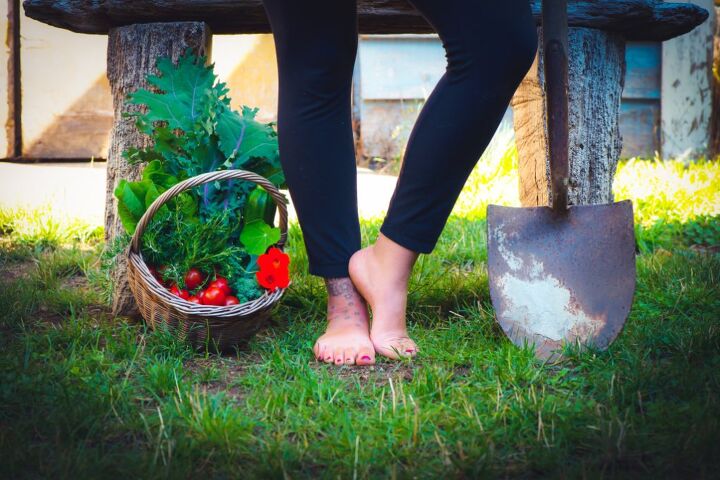






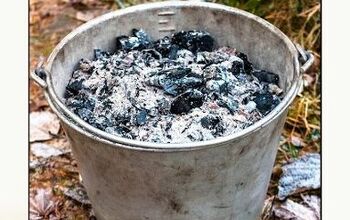

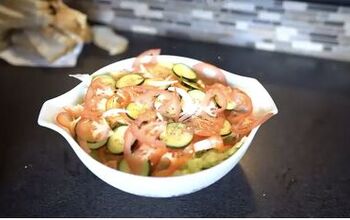



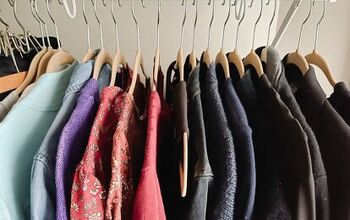



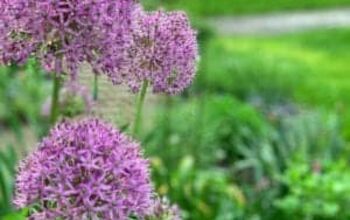


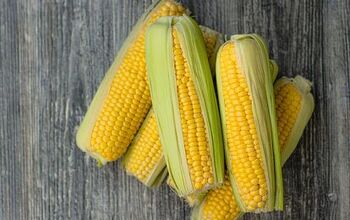
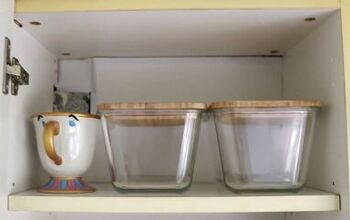



Comments
Join the conversation
you may be surprised at how many of the 1970s adults are till practicing what they preached. I am, and passed it along to my kids and grandkids. Homesteading can be done in a variety of ways. Enjoyed the article.
Hi there, I really enjoyed reading your article and I have been wanting to homestead, but I am a 66 year old disabled senior lady and I don't even have a boyfriend. But when I was younger I had a little farm with my first husband. and he is now dead. But I still at my age want to homestead but I don't want to do it here where I live in Nogales Arizona. Do you happen to know any gentlemen who are wanting a woman to homestead with? And how do I go about knowing where I can homestead and I am disabled and only receive S.S.I benefits definitely not enough to live on in the city. My email address is floranfaunaqueen@gmail.com